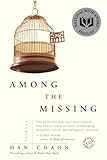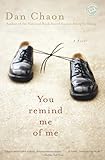 In my early and mid teens, I was a big reader of genre fiction: murder mysteries and thrillers, sci-fi and horror. Stephen King was a favorite, of course, and so was a novel by Frank de Felitta called Audrey Rose, about an eleven-year-old girl who turns out to be the reincarnation of girl who died in a gruesome car fire. The idea of being haunted from within, of being literally inhabited by the past, was deliciously frightening.
In my early and mid teens, I was a big reader of genre fiction: murder mysteries and thrillers, sci-fi and horror. Stephen King was a favorite, of course, and so was a novel by Frank de Felitta called Audrey Rose, about an eleven-year-old girl who turns out to be the reincarnation of girl who died in a gruesome car fire. The idea of being haunted from within, of being literally inhabited by the past, was deliciously frightening.
Then, at a new school, I came under the influence of teachers who lobbed some biggies at us: Dostoyevsky, Proust, Mann. Crime and Punishment showed me that the movements of a mind can be as suspenseful as migrating spirits and telekinetic powers, while Proust’s intricate explorations of time revealed less supernatural ways in which the past penetrates the present. Reading these masters, I began to feel, physically, the difference between sentences that merely move the plot along and sentences that are a type of music and a conduit for the exploration of human character. I became a lit snob and didn’t look back. There were only so many years to hit all the high points between Gilgamesh and the latest Alice Munro! Even when I was drawn to the premise or plot of the latest blockbuster, I found I lost interest by page 20. If a book doesn’t hold me sentence by sentence, it doesn’t hold me at all.
Dan Chaon is a writer for those of us who thought we’d left genre behind. Sure, contemporary writers such as Michael Chabon, Jonathan Lethem, and Colson Whitehead import genre conventions into their literary fiction, but my guess is that their most avid readers tend to be those who never lost their taste for the detective story, the thriller, or the futuristic drama, stories in which character generally takes a back seat to magic and adventure. You may read Chabon or Lethem for their powers of invention and their remarkable sentences, but you don’t read them for richly nuanced characterization.
In Chaon’s work, character, and character’s corollary, relationship, are primary — and therefore so are the emotions of longing, grief, guilt, and rage. Chaon has long been creating completely realistic scenarios that nevertheless transmit all of the distressing uncanniness of the best supernatural tales. A lover of Austen, Eliot, and James may never warm to Lethem and Co., but is likely enough to fall for Dan Chaon.
 Chaon published his first short story collection in 1995, but it was his second, Among the Missing, that put him on the map. It featured bizarre premises, such as a woman who purchases an inflatable doll to replace her dead husband, or a boy who believes that his next-door neighbor is literally himself, grown up. The standout stories created phenomenally convincing worlds in which Chaon’s typically isolated and self-distrusting characters are trapped by an ambivalence and epistemological uncertainty so strong as to become a crippling dread. In “I Demand to Know Where You’re Taking Me,” a woman is tormented by the pet parrot of her brother-in-law, who has been imprisoned for a series of rapes he says he didn’t commit (but the woman suspects he did). The parrot screams phrases like “Smell my feet!” and “Stupid cunt!” channeling the brother-in-law’s threatening presence into her previously safe-feeling home. In “Here’s a Little Something to Remember Me By,” a married man, on a visit to his childhood home, is suffocated by the saccharine attentions of the Ormsons, the parents of a boyhood friend who went missing when they were fourteen years old. Mr. and Mrs. Ormson treat the narrator like their substitute son, but their desperate affection feels vampiric. The horrors here are the horrors of ambiguity and unstable identity, of circumstances that feel supernatural even though they are always explainable in rational terms.
Chaon published his first short story collection in 1995, but it was his second, Among the Missing, that put him on the map. It featured bizarre premises, such as a woman who purchases an inflatable doll to replace her dead husband, or a boy who believes that his next-door neighbor is literally himself, grown up. The standout stories created phenomenally convincing worlds in which Chaon’s typically isolated and self-distrusting characters are trapped by an ambivalence and epistemological uncertainty so strong as to become a crippling dread. In “I Demand to Know Where You’re Taking Me,” a woman is tormented by the pet parrot of her brother-in-law, who has been imprisoned for a series of rapes he says he didn’t commit (but the woman suspects he did). The parrot screams phrases like “Smell my feet!” and “Stupid cunt!” channeling the brother-in-law’s threatening presence into her previously safe-feeling home. In “Here’s a Little Something to Remember Me By,” a married man, on a visit to his childhood home, is suffocated by the saccharine attentions of the Ormsons, the parents of a boyhood friend who went missing when they were fourteen years old. Mr. and Mrs. Ormson treat the narrator like their substitute son, but their desperate affection feels vampiric. The horrors here are the horrors of ambiguity and unstable identity, of circumstances that feel supernatural even though they are always explainable in rational terms.

 The pleasures and the impact continue with Chaon’s new collection, Stay Awake, following two well-received novels, You Remind Me of Me and Await Your Reply. While Stay Awake does not abandon Chaon’s signature themes of identity and isolation, disappearance and memory, it flirts even more openly with the line between the supernatural and the rationalistic – and indeed two of the stories, “The Bees” and “The Farm. The Gold. The Lily-White Hands,” have overtly supernatural elements. The situations have grown even more extreme: a couple has a two-headed baby, a woman drowns several of her children, a father comes into his young daughters’ bedroom intending to kill them in their sleep. Two men in two completely different stories fall off of ladders, severing a finger – a coincidence that I must admit I found distracting. Characters desperately want to or do escape their homes, their towns, the marriages they’ve made; they think they’re free of the past until memory or something even more sinister catches up with them. One character watches Soylent Green on late-night TV, and an actor in that horror movie is described as “running through the future, screaming.” The phrase could easily be an alternate title for this book.
The pleasures and the impact continue with Chaon’s new collection, Stay Awake, following two well-received novels, You Remind Me of Me and Await Your Reply. While Stay Awake does not abandon Chaon’s signature themes of identity and isolation, disappearance and memory, it flirts even more openly with the line between the supernatural and the rationalistic – and indeed two of the stories, “The Bees” and “The Farm. The Gold. The Lily-White Hands,” have overtly supernatural elements. The situations have grown even more extreme: a couple has a two-headed baby, a woman drowns several of her children, a father comes into his young daughters’ bedroom intending to kill them in their sleep. Two men in two completely different stories fall off of ladders, severing a finger – a coincidence that I must admit I found distracting. Characters desperately want to or do escape their homes, their towns, the marriages they’ve made; they think they’re free of the past until memory or something even more sinister catches up with them. One character watches Soylent Green on late-night TV, and an actor in that horror movie is described as “running through the future, screaming.” The phrase could easily be an alternate title for this book.
Stay Awake also is more preoccupied than Chaon’s earlier collection with the sending and receiving of messages – from departed family members or loved ones, from the universe itself. Chaon has spoken publicly about his wife’s premature death from cancer in 2008, and it’s impossible not to see in these stories a yearning for communication between those who disappear and those who remain. Chaon nicely leaves open the question of whether it’s scarier to imagine that the universe is trying to send us certain messages, or is not.
While there isn’t a single clunker in the entire collection, the standout, for my money, is “Shepherdess,” which is also, I must say, the one most in the Among the Missing vein. No truly gruesome situations here — just a drunken woman who falls rather comically out of a tree — and no supernatural elements. “Shepherdess” is simply about a youngish man, his mother who has just died, and a girlfriend whom he suspects is about to dump him: the old story of human bafflement and longing. Waiting in the hospital while his possibly-ex-girlfriend is getting treated after her fall, the story’s narrator speaks for nearly all of the significant characters in Stay Awake when he says: “I am not really sure how I am supposed to behave in this situation.”
The last story, “The Farm. The Gold. The Lily-White Hands” shows Chaon taking major risks with point of view and style, and bringing it off wonderfully. The narrator is dead, albeit only in an alternative universe, and the result is really freaking spooky. In the margin of my copy I scribbled, “I’m sorry I read this at night.” (Beside another story, I wrote: “No!! This is horrible — and very effective.”)
Chaon’s style is tone-perfect but hard to quote; there are no lyrical flights or riffs of obvious brilliance. It mixes brisk, sometimes even brutal, colloquialism with unobtrusively elevated language, and its power is contextual and cumulative. Easiest to cite are the more comic moments, as in the terrific opening to “Shepherdess”:
This girl I’ve been seeing falls out of a tree one June evening. She’s a little drunk — I bought a couple of bottles of hopefully decent Chardonnay from Trader Joe’s on my way over to her house — and now she’s a little drunk and a little belligerent. There is something about me that she doesn’t like, and we’ve been arguing obliquely all evening.
Can people ever change? Are our identities fixed in all the worst ways and fluid in all the worst ways, too? Chaon says: Unclear, and Yes and Yes. The take-away? Be Afraid. The truth is I didn’t just stop reading books like Audrey Rose so long ago because my taste improved. It was also because, the older I got, the more they scared the hell out of me. Scared me beyond pleasure and into real distress. Maybe, upon leaving the cocoon of family and childhood, I discovered that reality was more than enough to be frightened of. Dan Chaon knows that, too, and evokes just enough of the uncanny to bring me back to those old innocent genre thrills, while offering the lit-snob side of me the realism-based subtleties of language and character that I need like bread and water.




